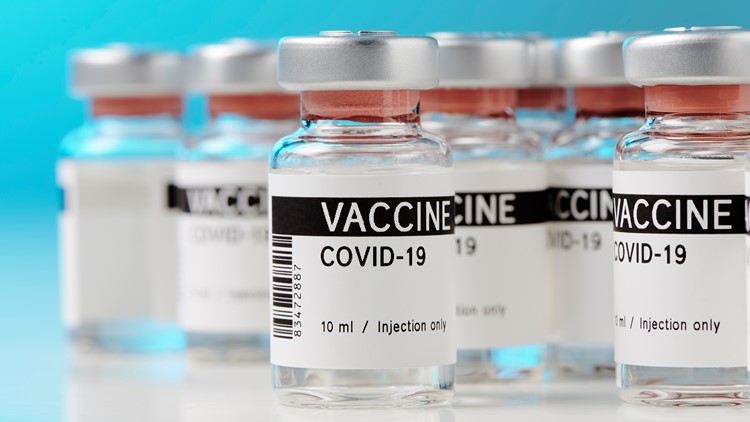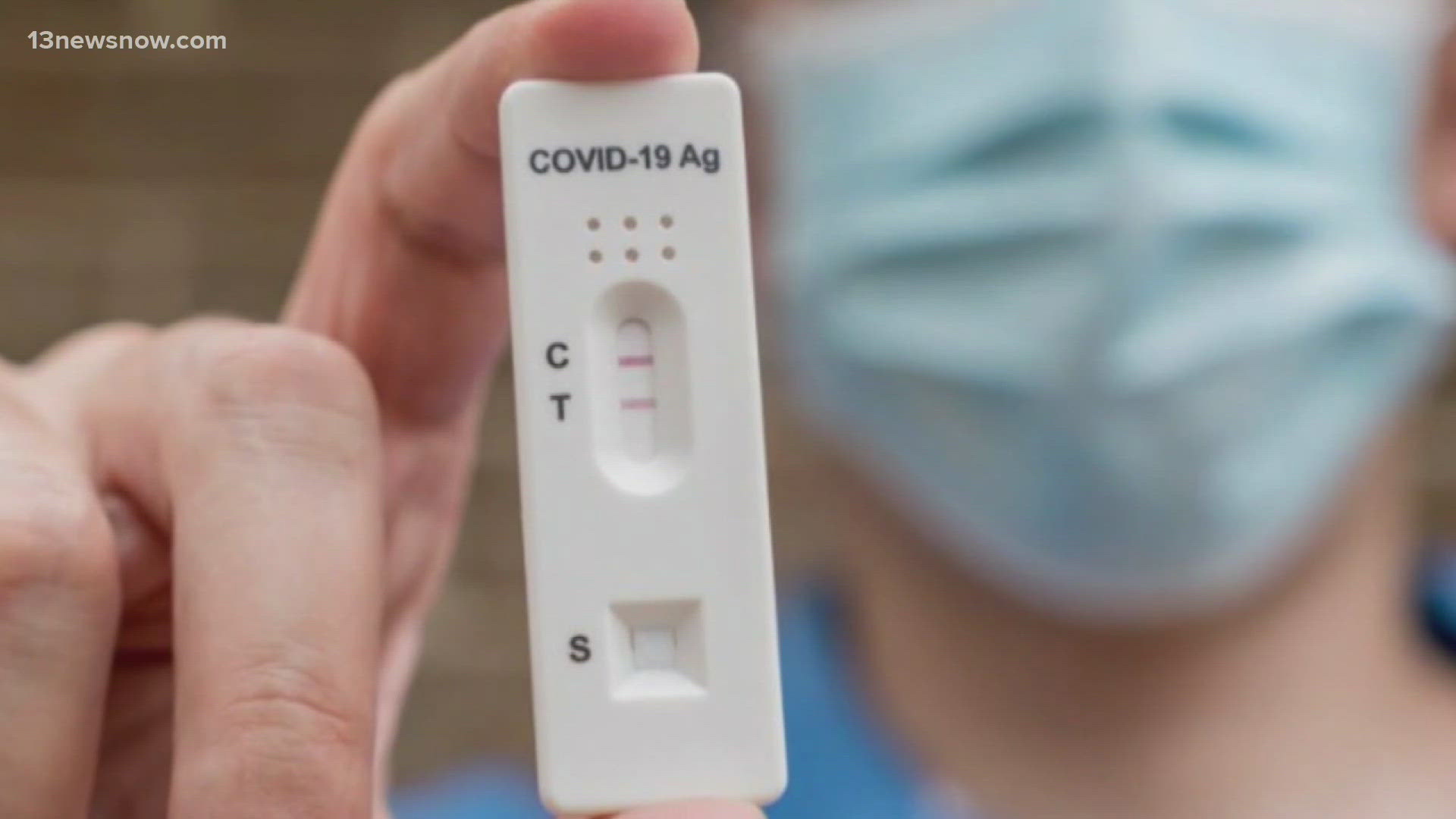NORFOLK, Va. — A recent study shows a possible link between the COVID-19 vaccines and changes in women's menstrual cycles.
The study, published by the journal "Science Advances," found that a significant number of women reported changes to their menstrual cycle after getting the vaccine.
The study surveyed more than 39,000 fully-vaccinated individuals and found that: 42% of respondents experienced a heavier period flow after getting the shot, 14% reported a lighter flow and 44% reported no change in flow.
Moreover, the study found that 66% of postmenopausal people reported breakthrough bleeding after doses of the vaccine.
While the study has made headlines, some health officials say it isn't showing the whole picture.
"It's like standing outside in a parking lot and whoever just happens to show up to take the survey is who gets surveyed. So, there's no scientific rigor at all," said Dr. Brooke Rossheim, a public health physician specialist with the Virginia Department of Health.
Dr. Rossheim said it is a "preliminary study," which could lay the groundwork for a more in-depth study to take place. He said while the study is interesting, it doesn't show much more than the opinion of 39,000 respondents.
"One thing I want to be very, very clear about is this study in no way, no way shows cause and effect," Dr. Rossheim said.
For more reliable results, Dr. Rossheim said a few things would need to take place:
- All respondents would need to be checked for prior history of menstrual changes.
- Proof of vaccination would need to be provided for all respondents.
- Only one variable would be changed, meaning half of the respondents should be vaccinated, while the other half unvaccinated.
Dr. Rossheim pointed to one particular passage in the study he believes to be important for readers:
"The nature of this survey means that we cannot compare the incidence of different experiences here with the general population (meaning, 40% of this sample having an experience does not mean that is the rate of that experience out in the world). The associations described here are not causal but provide evidence to better study these trends further. We emphasize that menstrual bleeding changes of this nature are generally not indicative of changes to fertility."
Nevertheless, this isn't the first study showing a link between the COVID-19 vaccines and changes in period cycles.
A January study by Obstetrics & Gynecology found that for some, cycle lengths did in fact change after receiving doses of the vaccine. The study found that out of the nearly 4,000 individuals surveyed, those vaccinated showed a slight increase in cycle length, while the unvaccinated showed no change.
With so many women reporting the same thing, what could possibly be the cause of these symptoms?
Dr. Jill Flood, a physician's supervisor at the Virginia Beach Health Dept., said these changes could stem from many things.
"We know that menstruation is associated with inflammatory change and vaccines cause inflammatory change. So, it could be through that mechanism," she said.
Dr. Flood said menstrual changes have been reported with other vaccines as well, including hepatitis B and Gardasil. And, according to Dr. Flood, some studies show unvaccinated women who get COVID have changes in their periods as well.
"By not getting vaccinated, you're not protecting yourself. Not only will you get COVID and all the potential outcomes that can happen from that, but you still may have menstrual changes," she said.
Moreover, Dr. Flood said simple things such as stress and nerves can cause changes to period cycles.
Both Dr. Flood and Dr. Rossheim advise anyone experiencing changes to their menstrual cycle to go see their primary care physicians.
Read the full study published by Science Advances below:



